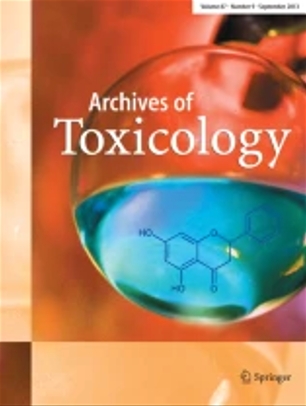Interactions between polycyclic aromatic hydrocarbons and genetic variants in the cGAS–STING pathway affect the risk of colorectal cancer
Abstract
The cGAS–STING pathway plays an essential role in the activation of tumor immune cells. Polycyclic aromatic hydrocarbons (PAHs) are environmental pollutants with potential carcinogenicity, and their exposure is associated with the development of colorectal cancer. However, the impacts of genetic factors in the cGAS‒STING pathway and gene‒environment interactions on colorectal cancer remain understudied. We used logistic regression models and interaction analysis to evaluate the impact of genetic variants on colorectal cancer risk and gene‒environment interactions. We analysed the expression patterns of candidate genes based on the RNA-seq data. Molecular biology experiments were performed to investigate the impact of PAHs exposure on candidate gene expression and the progression of colorectal cancer. We identified the susceptibility locus rs3750511 in the cGAS‒STING pathway, which is associated with colorectal cancer risk. A negative interaction between TRAF2 rs3750511 and PAHs exposure was also identified. Single-cell RNA-seq analysis revealed significantly elevated expression of TRAF2 in colorectal cancer tissues compared with normal tissues, especially in T cells. BPDE exposure increased TRAF2 expression and the malignant phenotype of colorectal cancer cells. The treatment also further increased the expression of the TRAF2 downstream gene NF-κB and decreased the expression of Caspase8. Our results suggest that the genetic variant of rs3750511 affects the expression of TRAF2, thereby increasing the risk of colorectal cancer through interaction with PAHs. Our study provides new insights into the influence of gene‒environment interactions on the risk of developing colorectal cancer.


 求助内容:
求助内容: 应助结果提醒方式:
应助结果提醒方式:


